Trusted Sleep Apnea Clinic in Singapore
Regain restful nights & improved health through personalised care from Sleeping Lab Singapore.
Do
you
SNORE?
ALWAYS
TIRED
During
The Day?
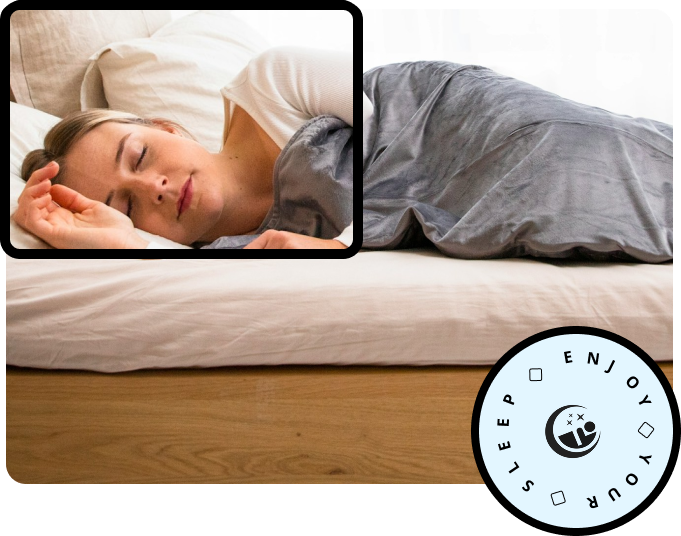
About us
From Science to Better Sleep, Every Night
Sleeping Lab, a fully owned subsidiary of The Listening Lab, is a team of experienced sleep specialists and healthcare professionals passionate about enhancing lives through better sleep solutions. Backed by years of expertise from The Listening Lab, we are driven by a shared mission to provide trusted, personalized care and effective sleep apnea management.

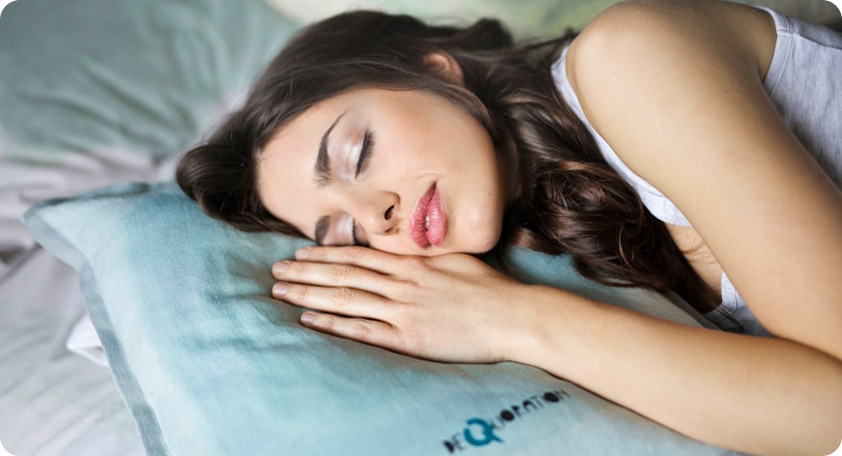
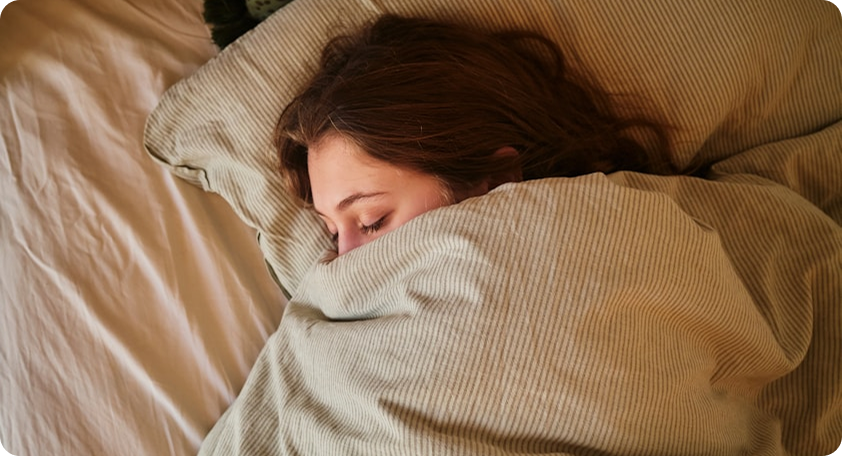
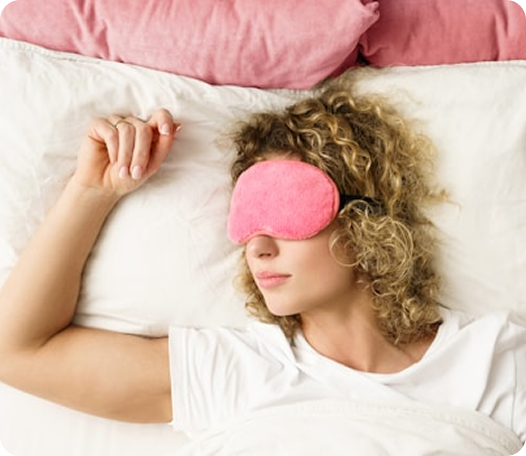
Our Mission
The Listening Lab has a clear mission: leading to a healthier and more fulfilling life by delivering expert sleep apnea care through accurate assessments, tailored treatment plans, and ongoing support. We are committed to helping our clients breathe better, sleep soundly, and live healthier lives.
Our Vision
To be at the forefront provider of healthier life – where restful sleep and enjoy improved well-being through accessible, high-quality sleep apnea care.
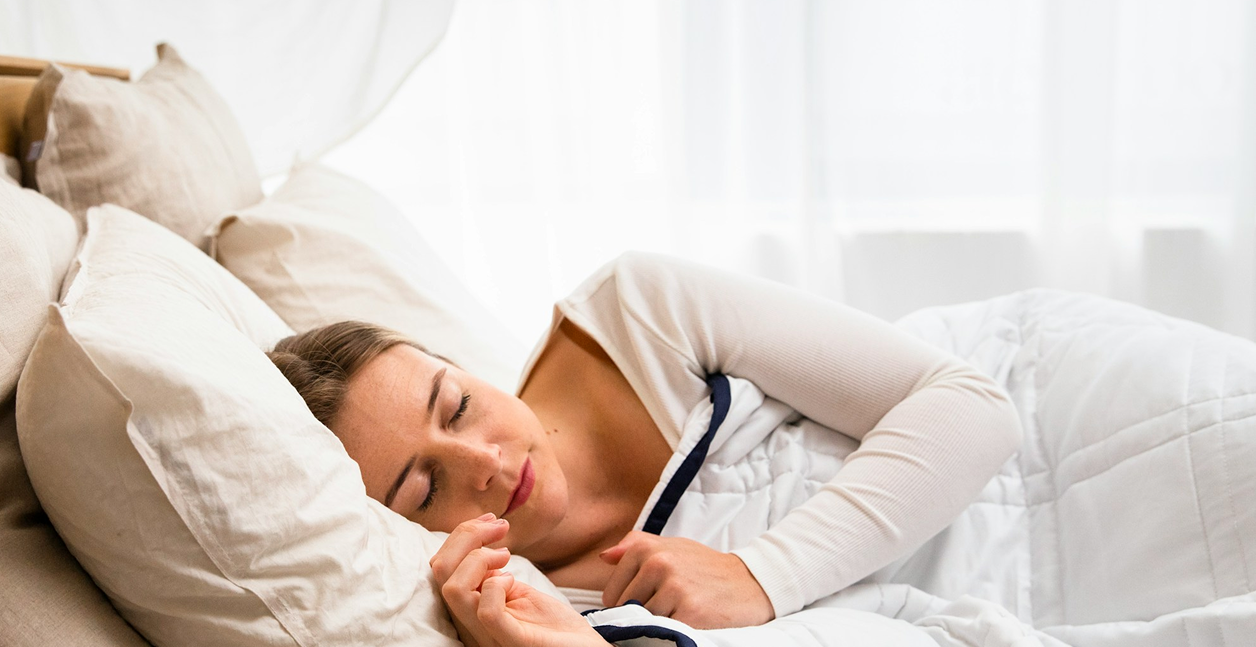
Our Mission
The Listening Lab has a clear mission: leading to a healthier and more fulfilling life by delivering expert sleep apnea care through accurate assessments, tailored treatment plans, and ongoing support. We are committed to helping our clients breathe better, sleep soundly, and live healthier lives.
Our Vision
To be at the forefront provider of healthier life – where restful sleep and enjoy improved well-being through accessible, high-quality sleep apnea care.
Getting Started

Consultation & Evaluation
Meet our sleep specialists for a thorough consultation and medical history.
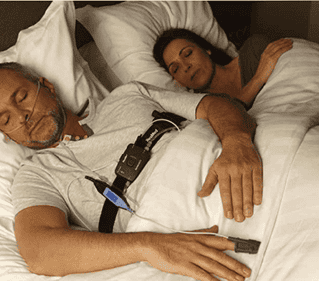
Diagnostic Sleep Study
Take part in a home-based sleep test to gain accurate insights on the severity of sleep apnea.

CPAP Therapy & Equipment
If recommended, begin treatment with a CPAP (Continuous Positive Airway Pressure) device.

Continuous Care & Support
Benefit from follow-up sessions and progress reviews to optimise your treatment.
What is CPAP Therapy?
What is CPAP Therapy:
Continuous Positive Airway Pressure (CPAP) therapy keeps your airways open during sleep, reducing snoring and breathing pauses. This proven treatment helps you sleep better, feel more energised, and protect your long-term health.
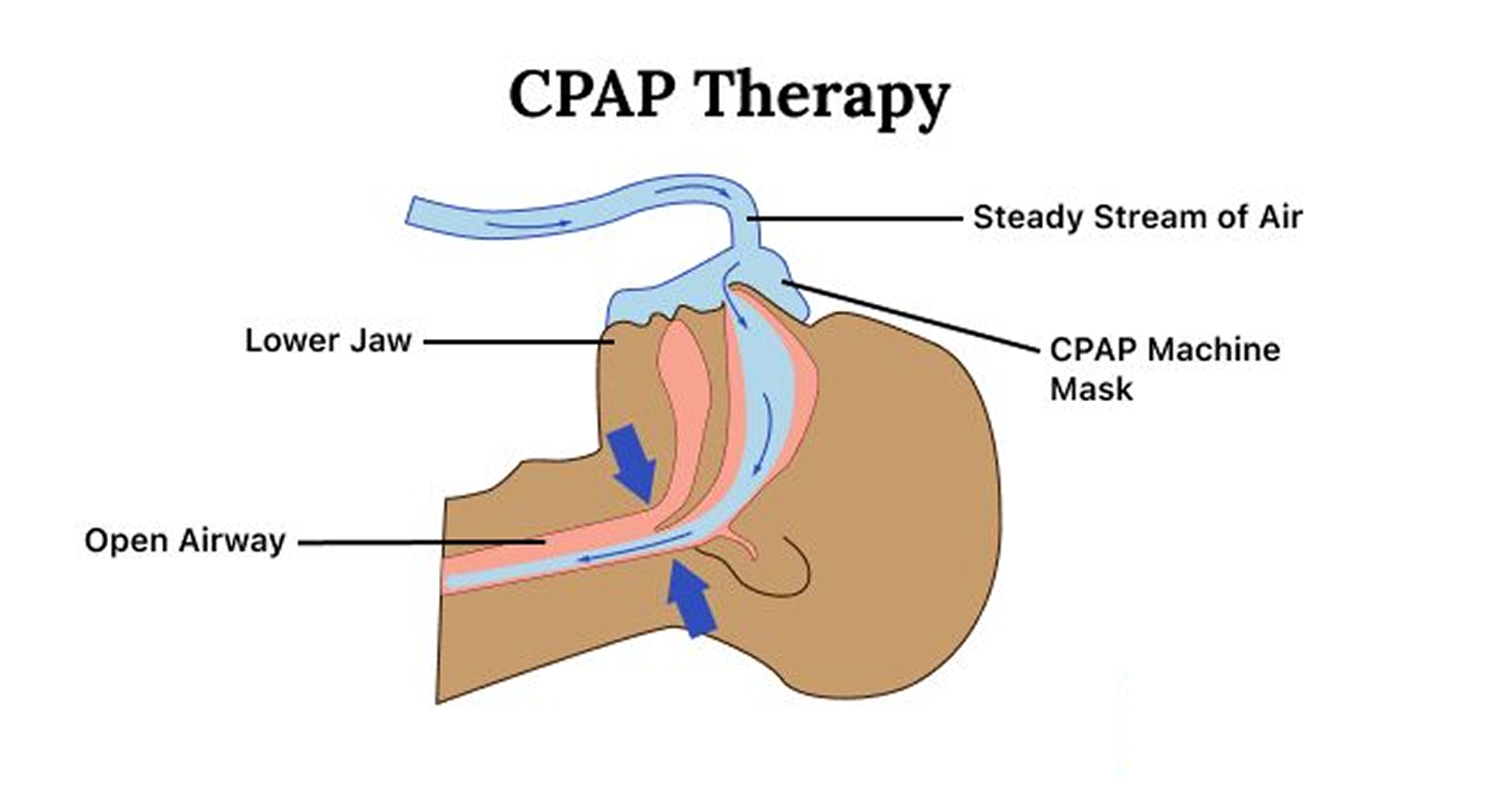
Frequently Asked Questions (FAQ)
Sleep apnea is a sleep disorder in which the muscles in the throat relax to the point of collapse, restricting airflow. This causes breathing to become shallow and even stop for seconds or minutes at a time, depriving the body and brain of oxygen.
The lack of deep sleep can cause significant fatigue and elevate the risk for serious health problems. Most people with sleep apnea are unaware they have it. Untreated sleep apnea can lead to serious complications such as cardiovascular problems, high blood pressure, and an increased risk of accidents.
There are three main types of sleep apnea.
- Obstructive Sleep Apnea (OSA): When we sleep, the throat relaxes. For people with OSA, sometimes they relax so much that the airway becomes narrowed or blocked. As a result, air flow is reduced or completely stops flowing into the upper airway and the lungs, so the body doesn’t get the oxygen it needs to function. To summarize, it occurs when the throat muscles relax excessively.
- Central Sleep Apnea (CSA): Involves a failure of the brain to send proper signals to the muscles that control breathing.
- Complex/Mixed Sleep Apnea: A combination of both obstructive and central sleep apnea.
Common symptoms include loud snoring, choking or gasping during sleep, daytime sleepiness, difficulty concentrating, and morning headaches.
The most common/best way for sleep apnea to be diagnosed is with a sleep test ordered by your physician. The test can be done either overnight in a sleep lab or through a home sleep test. Reference
Risk factors include obesity, neck circumference, being older, family history, smoking, alcohol use, and nasal congestion.
Untreated sleep apnea can lead to serious health issues such as hypertension, heart disease, stroke, diabetes, and an increased risk of accidents due to daytime sleepiness.
CPAP (Continuous Positive Airway Pressure) therapy involves using a machine that delivers a constant stream of air to keep the airways open during sleep. Other treatment includes lifestyle changes (weight loss, positional therapy), oral appliances, surgery and in some cases, medication.
Effective sleep apnea therapy, which includes the uses of CPAP equipment, has been shown to help ease common symptoms and improve energy levels, productivity and overall mind-body wellness. It’s important to remember that if left untreated, sleep apnea can lead to other serious health issues.
A CPAP (Continuous Positive Airway Pressure) machine is a common and effective treatment for Obstructive Sleep Apnea (OSA). How it works and how it helps improve sleep:
- Maintains Open Airway:
- The primary function of a CPAP machine is to keep the airway open during sleep. In individuals with sleep apnea, the muscles in the throat relax excessively, leading to a collapse or partial blockage of the airway. The CPAP machine delivers a continuous stream of air through a mask, which prevents the airway from collapsing.
- Increases Air Pressure:
- The CPAP machine provides a constant and steady flow of air at a prescribed pressure level. This pressure acts as a pneumatic splint, preventing the collapse of the throat tissues and maintaining an open airway.
- Eliminates Snoring:
- Snoring is a common symptom of sleep apnea. The CPAP machine helps eliminate or significantly reduce snoring by preventing the vibration of the relaxed throat tissues.
- Improves Oxygen Levels:
- By keeping the airway open, the CPAP machine ensures a consistent flow of oxygen into the lungs. This helps maintain adequate oxygen levels in the blood, preventing drops in oxygen saturation that can occur during apnea events.
- Reduces Daytime Sleepiness:
- One of the consequences of untreated sleep apnea is excessive daytime sleepiness. The CPAP machine improves sleep quality, leading to better-rested nights and reduced daytime sleepiness.
- Enhances Sleep Quality:
- With the continuous positive airway pressure, individuals using a CPAP machine experience improved sleep quality. By preventing interruptions in breathing, it allows for more consistent and deeper sleep cycles.
- Reduces the Risk of Health Complications:
- Effective treatment with a CPAP machine can reduce the risk of health complications associated with untreated sleep apnea, such as hypertension, cardiovascular disease, and diabetes.
- Enhances Cognitive Function:
- Adequate and quality sleep is essential for cognitive function. By addressing sleep apnea, the CPAP machine contributes to improved concentration, memory, and overall cognitive performance.
- Enhances Mood:
- Sleep apnea can contribute to mood disturbances and irritability. Treating sleep apnea with a CPAP machine can lead to improved mood and a better overall sense of well-being.
In many cases, lifestyle changes and treatments can effectively manage sleep apnea, but it may not completely be cured. Continuous management is often necessary.


